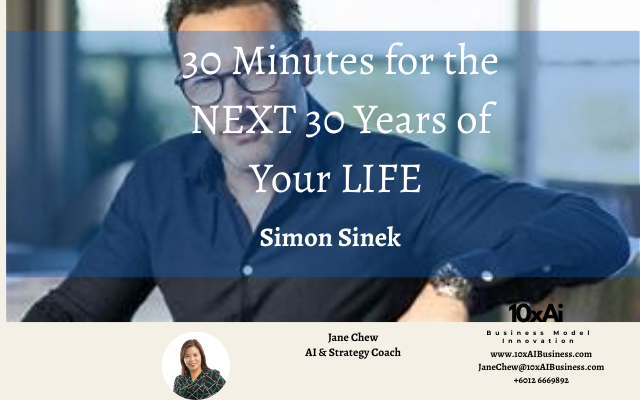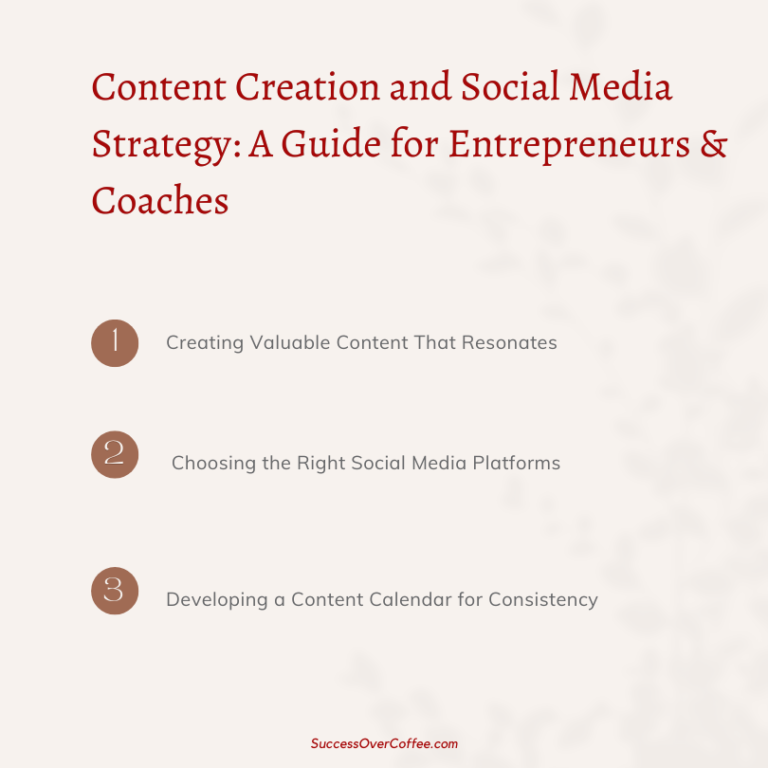Simon Sinek – “Understanding Empathy” (Full Transcript)
Executive Summary
Simon Sinek argues that remarkable leadership rests on two often-forgotten skills: empathy and perspective. Leaders are not responsible for the results—they’re responsible for the people who are responsible for the results. Empathy creates psychological safety (so people can say “I need help” or “I made a mistake”), while perspective helps leaders play the Infinite Game—prioritizing cause and longevity over short-term wins, layoffs, and “shareholder supremacy.”
Pull Quote: “Leadership is not about being in charge; it’s about taking care of those in your charge.” — Simon Sinek
Key Takeaways
- Role shift: Promotions require a transition from doing the job to caring for the people who do the job.
- Empathy in action: Start performance talks with “Are you okay?” before targets and dashboards.
- Environment ≥ individuals: Same person, different culture → different customer outcomes (Four Seasons vs. Caesars example).
- Stop fear tactics: Mass layoffs and shareholder-first dogma destroy trust and long-term performance.
- Safety ≠ softness: Vulnerability means people feel safe to admit mistakes and ask for help.
- Perspective: Business is an infinite game; organize to keep playing, compete against yourself, and advance the cause.
Core Themes
Empathy: Care about the human behind the KPI. Address life context before output.
Leadership as service: Give away credit when it goes right; take responsibility when it goes wrong.
Culture design: Leaders shape environments that unlock people’s natural best—don’t blame “bad hires.”
Trust economics: Layoffs and fear-based management destroy cooperation instantly.
Infinite Game mindset: No true “winner.” Focus on staying in the game—purpose, product betterment, customer care.
FAQs
How do I start practicing empathy today?
Open 1:1s with “How are you, really?” Listen first; coach second. Offer help and remove blockers before pushing targets.
Is empathy compatible with high standards?
Yes. Empathy clarifies obstacles so people can hit standards faster and more sustainably.
What does the Infinite Game change in strategy?
Shift from competitor-obsession to cause-obsession. Measure momentum, durability, and learning, not one-quarter wins.
Full Transcript
Show/Hide Transcript
Empathy & Perspective Define Leadership
so I’m embarrassed that I have a career I talk about things like trust and cooperation and there should be no demand for my work but the fact of the matter is is there is demand for my work which means that there’s an opportunity it means that trust and cooperation are not yet standard in our organizations and yet they should be and we know that which is why we’re looking for ways to bring those things to our organizations so I thought I would do something a little different today you know when you’re speaking to tens of thousands of people and you have the opportunity to share a message of course most rational people would say let’s go with something I’ve talked about lots of times and I’m really good at but I’m not normal so I’m gonna do something completely new and I hope this works out there are two things that I think that great leaders need to have empathy and perspective and I think these things are very often forgotten leaders are so often so concerned about their status of their position and organization they actually forget their real job and the real job of a leader is not about being in charge it’s about taking care of those in our charge and I don’t think people realize this and I don’t think people train for this when we’re junior our only responsibility is to be good at our jobs that’s all we really have to do and some people actually go get advanced education and so that they can be really good at their jobs accountants or whatever right and you show up and you work hard and the company will give us tons and tons of training how to do our jobs they’ll shows how to use the software they’ll send us away for a few days to get trained in whatever it is that we’re doing for the company and then they expect us to go be good at our jobs and that’s what we do we work very hard and if you’re good at your job they’ll promote you and at some point you’ll get promoted to position where we’re now responsible for the people who do the job we used to do but nobody shows us how to do that and that’s why we get managers and not leaders because the reason our managers micromanaging us is because they actually do know how to do the job better than us that’s what got them promoted really what we have to do is go through a transition some people make it quickly some people make it slowly and unfortunately some people will never make that transition at all which is we have to go this through this transition of being responsible for the job and then turning it to somebody who’s now responsible for the people who are responsible for the job and as I said before one of the great things that is lacking in most of our companies is that they are not teaching us how to lead and leadership is a skill like any other is a practice’ balloon able skill and it is something that you work on it’s like a muscle if you practice it all the days you will get good at it and you will get to become a strong leader if you stop practicing you will become a weak leader like parenting everyone has the capacity to be a parent doesn’t mean everybody wants to be a parent and doesn’t mean everybody shouldn’t be a parent leadership is the same we all have the capacity to be a leader doesn’t mean everybody should be a leader and it doesn’t mean everybody wants to be a leader and the reason is because it comes at great personal sacrifice remember you’re not in charge you’re responsible for those in your charge that means things like when everything goes right you have to give away all the credit and when everything goes wrong you have to take all the responsibility that sucks right it’s things like staying late to show somebody what to do it’s things like when something does actually break when something goes wrong instead of yelling and screaming and taking over you say try again when the overwhelming pressures are not on them the overwhelming pressures are on us at the end of the day great leaders are not responsible for the job they’re responsible for the people who are responsible for the job they’re not even responsible for the results I love talking to CEOs and say what’s your priority and they put their hands on their hips old proud and say my priority is my customer I’m like really even talk to a customer in 15 years there’s no CEO on the planet responsible for the customer they’re just not they’re responsible for the people who responsible for the people who responsible for the customer
Culture Creates Performance (Four Seasons vs. Caesars)
I’ll tell you a true story a few months ago I stayed at the Four Seasons in Las Vegas it is a wonderful hotel and the reason it’s a wonderful hotel is not because of the fancy beds any hotel can go and buy a fancy bed the reason it’s a wonderful hotel is because of the people who work there if you walk past somebody at the Four Seasons than this and they say hello to you you get the feeling that they actually wanted to say hello to you it’s not that somebody told them that you have to say hello to all the customers say hello to all the guests right you actually feel that they care now in their Lobby they have a coffee stand and I one afternoon I went to buy a cup of coffee and there was a barista by the name of Noah who was serving me Noah was fantastic he was friendly and fun and he was engaging with me and I had so much fun buying a cup of coffee I actually think I gave a hundred percent tip right he was wonderful so as is my nature I asked Noah do you like your job and without skipping a beat Noah says I love my job and so I followed up I said what is it that the four seasons is doing that would make you say to me I love my job and without skipping a beat Noah said throughout the day managers will walk past me and ask me how I’m doing if there’s anything that I need to do my job better he said not just my manager any manager and then he said something magical he says I also work at Caesars Palace and Caesars at Caesar’s Palace the managers are trying to make sure we’re doing everything right they catch us when we do things wrong he says when I go to work there I like to keep my head under the radar and just get through the day so I can get my paycheck he says here at the Four Seasons I feel I can be myself same person entirely a different experience from the from the customer who will engage with Noah so we in leadership are always criticizing the people we’re always saying we gotta get the right people I’ve got to film I run my team I gotta get the right people but the reality is it’s not the people it’s the leadership if we create the right environment we will get people like Noah at the four seasons if we create the wrong environment we will get people like Noah at Caesar’s Palace it’s not the people and yet we’re so quick to hire and fire you can’t hire and fire your children if there’s if your kids are struggling we don’t say you got to see at school you’re up for adoption so why is it that when somebody has performance problems at work why is it that our instinct is to say you’re out
What Empathy Looks Like
we do not practice empathy what does empathy look like here’s the lack of empathy this is normal in our business world you walk into someone’s office someone walks into our office and says your numbers have been down for the third quarter in a row you have to pick up your numbers otherwise I can’t guarantee what the future will look like how inspired you think that person is to come to work the next day here’s what empathy looks like you walk into someone’s office someone walks into your office and says your numbers are down for the third quarter in a row are you okay I’m worried about you what’s going on we all have performance issues maybe someone’s kid is sick maybe they’re having problems in their marriage maybe one of their parents is dying we don’t know what’s going on in their lives and of course it will affect performance at work empathy is being concerned about the human being not just their output
Critique: Shareholder Supremacy & Layoffs
we have for some reason our work world has changed in the past 20 and 30 years we are suffering the side effects of business theories left over from the 80s and 90s and they are bad for people and they are bad for business let me give you an example the concept of shareholder supremacy was a theory proposed in the late 1970s it was popularized in the 80s and 90s it is now standard form today you talk to any public company and you ask them their priority and they say maximize shareholder value really that’s like a coach prioritizing the needs of the fans over the needs of the players how you gonna build a winning team with that model … here’s another one mass layoffs using someone’s livelihood to balance the books right it’s so normal in America today that we don’t even understand how broken and how damaging it is not only to human beings but to business … do you know the quickest way to destroy trust and destroy cooperation in a business literally in one day lay people off and everyone gets scared … every single decision a company makes as a piece of communication … in other words we come to work every day afraid
Vulnerability = Safety to Admit & Learn
we’re constantly being told you has to be vulnerable leaders are vulnerable what does that even mean it doesn’t mean you walk around crying … what vulnerability means as you create an environment in which someone feels safe enough to raise their hand and said I don’t know what I’m doing … I need help … I made a mistake … I’m scared … no one would ever admit inside a company because it puts a target on your head in case there’s another round and so we keep it to ourselves … we’ve literally created cultures in which every single day everybody comes to work and liya hai lies hides and fakes … this is what empathy means it means if there’s an entire generation struggling maybe it’s not them … maybe it’s you … they’re human beings like the rest of us trying to find their way … how do I help my people be at their natural best
Everyday Empathy
we have to start by practicing empathy … someone’s driving to work … and someone wants to cut into your lane … most of us pull our cars up and go like this you wait your turn … now let’s practice empathy … maybe they’ve been out of work for six months … maybe they’re late for a really important interview … or maybe they’re just a bastard … we don’t know … and the practice of empathy will say I’ll let them in and I’ll arrive to work one car lengths late … we don’t always have to be right …
Perspective: Finite vs. Infinite Games
and that’s where I go to the second point after empathy comes perspective where it’s not about winning or losing … in game theory there are two kinds of games there are finite games and there are infinite games … a finite game is defined as known players fixed rules and an agreed upon objective … an infinite game … known and unknown players the rules are changeable and the objective is to keep the game in play … problems arise when you pit a finite player versus an infinite player … now let’s look at business … there’s no winning the game of business … we haven’t agreed to the rules … it’s arbitrary … the leaders and the companies that understand the game that they’re in … organize their resources and their decision making [for] the infinite contest … they frustrate their competition
Apple vs. Microsoft (Cause vs. Competitor)
Jim Senegal of Costco: “public companies [focus on] the quarter … we’re looking for the next 50 years” … Microsoft (then) spent time on beating Apple; Apple spent time on helping teachers teach and students learn … Microsoft gave me a Zune—spectacular—told an Apple exec “it’s better than your iPod touch” … he said “I have no doubt” … the infinite player isn’t playing to be number one every day … Apple competes against itself … “how do we make our products better than yesterday?” … those who play the infinite game understand it’s not about the battle it’s about the war
Close
every single bankruptcy almost every merger and acquisition is basically a company saying we no longer have the will or the resources to continue to play … you want to be a great leader start with empathy you want to be a great leader change your perspective and play the game you’re actually playing





